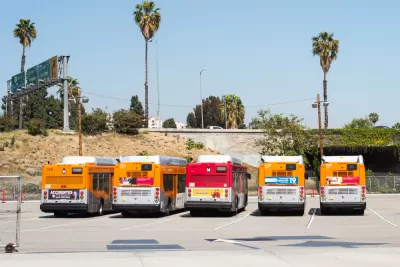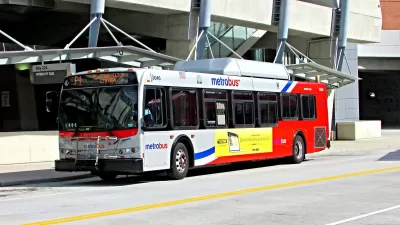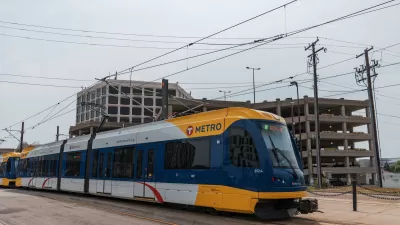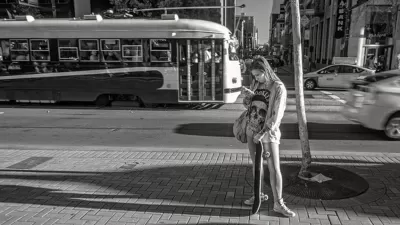Commitment gets tested when a dedicated urbanist, transit rider, and L.A. County planner is relocate to a suburban office. Clement Lau shares his thoughts about the good and the bad of riding an L.A. Metro bus.

For many urbanists, walking the talk regarding an urban, transit oriented life style while remaining gainfully employed means a reverse commute, i.e., commuting from a downtown home to a job in the suburbs. Such a commute can be more difficult to accomplish via public transit than a traditional commute. Nearly all cities are the center of local and regional transit lines, including light rail. On the suburban ends of such transit lines are often park-n-ride lots and connecting transit routes to capture suburban residents who don't live adjacent to the direct transit routes to urban centers. Of course, the "last mile" remains a conundrum in much of American transit commuting, but it is arguably worse for those having to accomplish a reverse commute. One's personal car can be used to address the first mile gap in a transit commute but not the last mile gap.
When transit user, downtown resident, and L.A. County planner Clement Lau's office was moved from Koreatown to Alhambra, his public transit commute became a rather time consuming multi-leg endeavor. His new Alhambra workplace is only reachable from downtown by using, at least part of the way, an automobile or bus. Nevertheless, his walk-subway-bus-walk commute has some hidden rewards. On the other hand, he has become fully aware of the hierarchy of public perception about transit modes, with buses occupying (unfairly) the bottom rung. Nevertheless, he believes there are some significant opportunities for improving the L.A. bus network, without major infrastructure expenditures. For example, improvement is needed in the areas of reliability, scheduling, and communicating with users, and getting real time information to them when there are delays. To read more of his observations and recommendations, please see the source article.
FULL STORY: Riding the Bus: The Good, the Bad, and the Ugly

Trump Administration Could Effectively End Housing Voucher Program
Federal officials are eyeing major cuts to the Section 8 program that helps millions of low-income households pay rent.

Planetizen Federal Action Tracker
A weekly monitor of how Trump’s orders and actions are impacting planners and planning in America.

Ken Jennings Launches Transit Web Series
The Jeopardy champ wants you to ride public transit.

California Invests Additional $5M in Electric School Buses
The state wants to electrify all of its school bus fleets by 2035.

Austin Launches $2M Homelessness Prevention Fund
A new grant program from the city’s Homeless Strategy Office will fund rental assistance and supportive services.

Alabama School Forestry Initiative Brings Trees to Schoolyards
Trees can improve physical and mental health for students and commnity members.
Urban Design for Planners 1: Software Tools
This six-course series explores essential urban design concepts using open source software and equips planners with the tools they need to participate fully in the urban design process.
Planning for Universal Design
Learn the tools for implementing Universal Design in planning regulations.
Ada County Highway District
Clanton & Associates, Inc.
Jessamine County Fiscal Court
Institute for Housing and Urban Development Studies (IHS)
City of Grandview
Harvard GSD Executive Education
Toledo-Lucas County Plan Commissions
Salt Lake City
NYU Wagner Graduate School of Public Service





























